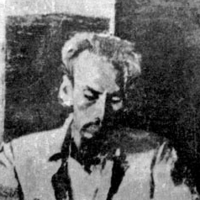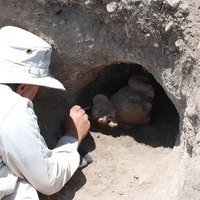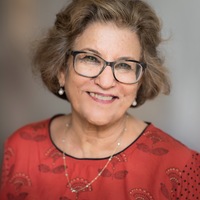
Alan Rumsey
Alan Rumsey is a Professor of Anthropology in the College of Asia and the Pacific, Australian National University. His research fields are highland Papua New Guinea and Aboriginal Australia, with a focus on intersubjectivity, child language socialization, comparative poetics, language and politics, and indigeneity and the state. He is currently engaged, along with Francesca Merlan, in a major ARC-funded research project on Children’s Language Learning and the Development of Intersubjectivity. He is also a Chief Investigator in the ARC Centre of Excellence for the Dynamics of Language.
less
Related Authors
Noel B. Salazar
KU Leuven
Scott Kiesling
University of Pittsburgh
Armando Marques-Guedes
UNL - New University of Lisbon
Jack Sidnell
University of Toronto
John Sutton
Macquarie University
Michael Dietler
University of Chicago
Gary Feinman
Field Museum
Cymene Howe
Rice University
Veena Das
Johns Hopkins University
Pablo Wright
Universidad de Buenos Aires










Uploads
Papers by Alan Rumsey
of the details of Trobriand social structure and personal life to cast doubt on the universality of the Oedipus complex, or, closer thematically to our focus here, of Michelle Rosaldo’s Ilongot-based assault on speech act theory (to which we return below). Neither of these efforts even approached complete success in unseating the paradigms they took on—entrenched
ideas die hard—but they did stimulate a lot of valuable social-theoretical debate. Our aim here is to try to do the same.
The focused bit of ethnography which all of the contributors to this special section have in hand is the assertion, widespread in the societies of the Pacific, that it is impossible or at least extremely difficult to know what other people think or feel. We have called this idea the doctrine of “the opacity of other minds.”
of the details of Trobriand social structure and personal life to cast doubt on the universality of the Oedipus complex, or, closer thematically to our focus here, of Michelle Rosaldo’s Ilongot-based assault on speech act theory (to which we return below). Neither of these efforts even approached complete success in unseating the paradigms they took on—entrenched
ideas die hard—but they did stimulate a lot of valuable social-theoretical debate. Our aim here is to try to do the same.
The focused bit of ethnography which all of the contributors to this special section have in hand is the assertion, widespread in the societies of the Pacific, that it is impossible or at least extremely difficult to know what other people think or feel. We have called this idea the doctrine of “the opacity of other minds.”